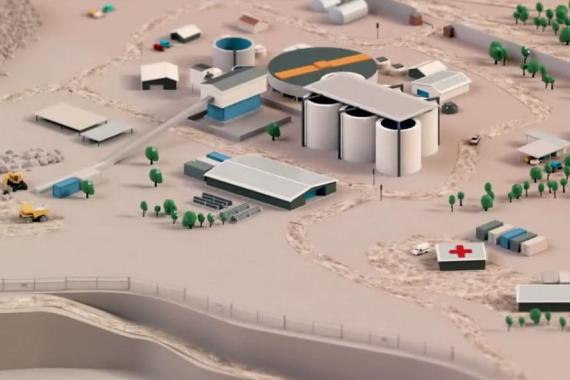Read the latest report 'Gold and climate change: Adaptation and resilience' here
The World Gold Council and its members recognise that climate change imposes very substantial risks to the global economy and socio-economic development. Policy makers, industry participants, investors, asset owners, and wider society are now eager for a greater understanding of these risks and their potential consequences, and how they might be mitigated or managed in future.
To contribute to a clearer, more consistent appreciation of how climate-related risks (and opportunities) might impact the future prospects of the gold industry and its many stakeholders, we have undertaken a programme of research, in collaboration with leading sustainability experts and academics.
[Also, find out more about gold’s possible contribution to sustained socio-economic development here]
Find out more about sustained socio-economic development here
In 2018, we published Gold and Climate change: An Introduction. This report was an initial step towards a better understanding of the gold industry’s greenhouse gas emissions (GHG) footprint, the efforts already underway in the gold mining sector to reduce emissions and improve energy efficiency, and gold's potential contribution to the development of low carbon technologies.
Building on our initial findings, we released Gold and Climate Change: Current and Future Impacts in 2019. We believe that the analysis in this report offers a comprehensive overview of the current status of gold’s climate impacts, while identifying how the sector might adapt in the face of climate change in order to transition to a ‘net zero’ carbon future. It also examines how gold’s role as an investment asset might be affected by climate-related physical and transition risks in comparison to the other mainstream investments.
Looking in more detail at gold’s decarbonisation pathway, our 2020 ‘Gold and Climate Change: The Energy Transition’ report takes a closer look at gold mining’s energy transition and climate impacts over the next decade. It aims to provide investors and industry stakeholders with greater clarity around gold’s greenhouse gas emissions profile and the specific steps needed for the gold sector to substantially reduce its carbon footprint. This analysis includes an examination of the implications of particular actions, with a focus on the shift to renewable power sources, in contributing to the sector’s potential pathway to net zero carbon, in line with Paris Agreement targets.
Gold and Climate Change: Decarbonising Investment Portfolios, released in 2021, examines gold’s potential impact on the carbon profile of investment portfolios and their alignment with climate targets. This report offers investors, asset allocators, and investment consultants and advisors a greater understanding of the implications of the transition to net zero carbon for gold in the context of a global multi-asset portfolio.
Our most recent work, Gold and Climate Change: Adaptation and Resilience, published in 2022, looks at the other main category of climate-related risks – that is, the potential physical hazards and impacts caused by a changing climate and how they might affect gold mining operations and local communities. There is clear and compelling evidence in the report to suggest that gold mining companies are well aware of many climate hazards and have taken action to reduce their vulnerabilities. There is, however, more that can be done to ensure a more robust and consistent approach to building future adaptive capacity, and the report details a number of recommendations to guide future planning to extend industry and local community resilience.
Our Members have also taken collective action. In 2021, all of the World Gold Council’s members committed to reporting their positions and progress on climate-related risks in line with the recommendations of the Taskforce for Climate-related Financial Disclosures (TCFD).
In addition to our dedicated programme of research, the World Gold Council is also widely engaged in discussions with a broad range of climate policy, sustainability and investment strategy leaders to learn more regarding how they are developing climate-focused solutions.
We recognise that the economic, financial and policy landscapes are changing rapidly in response to the urgent need to define plans and escalate actions to moderate climate impacts. We are therefore committed to further developing our knowledge and capacity to contribute to greater resilience and risk reduction in the face of climate change.


